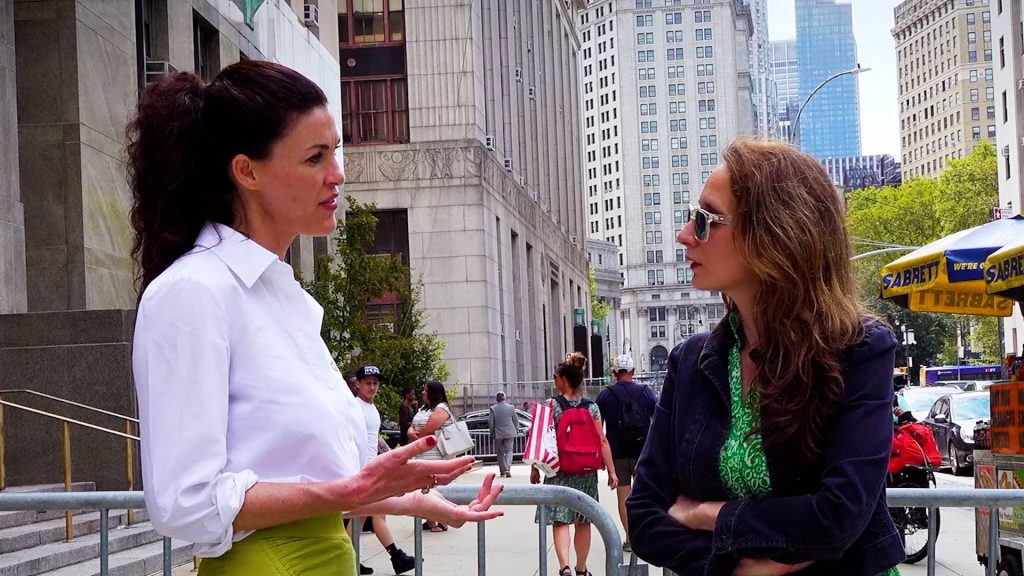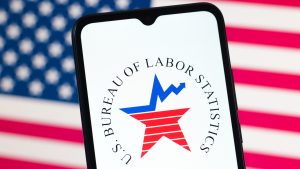Exclusive: She covered Weinstein and Diddy. She has thoughts about #MeToo

NEW YORK — Professional queuers sold their spots in line to journalists waiting to cover the salacious trial of music mogul Sean “Diddy” Combs. This week, Harvey Weinstein rolled into court handcuffed to his wheelchair, where his lawyer said the disgraced movie producer will not take a plea deal.
Just a couple of blocks from each other, these courtrooms in downtown Manhattan hosted the year’s most consequential cases in the wake of the #MeToo movement.
After Weinstein learned this week he’ll likely face his third trial in New York City this year, SAN spoke with Marie Pohl, a writer who covered the daily rhythm of both trials. Pohl shared her insights into the two trials, where #MeToo stands now, and the lasting impact, if any, these cases had.
The Weinstein precedent
Weinstein has already been convicted of rape and other charges in Los Angeles and of sexual assault in New York. His last pending case focuses on Jessica Mann, an aspiring actress who claimed Weinstein raped her in a Manhattan hotel room in 2013. A jury found him guilty of this and other crimes in 2020, and Weinstein was sentenced to 23 years in prison. An appeals court overturned his conviction, however, saying the judge had allowed the jury to hear prejudicial evidence. Prosecutors moved immediately to try Weinstein again.
“That appeal was sort of a historic victory for the defense, because they set precedent,” Pohl told SAN Thursday outside the courthouse. “The reason why his case was overturned was because the judges agreed that it’s damaging to bring women, to have women testify that don’t actually have anything to do with the charges, directly, whose stories are not part of the charges.”
Pohl added, “But the argument here was, this portrays him as a man who’s maybe a sex addict, you know, and so that that wasn’t fair, and the judges agreed. And that sets precedent for other cases.”
Comparing Weinstein and Diddy’s trials
In the Combs case, tried in the U.S. District Court in Manhattan, the 55-year-old producer ultimately dodged a life sentence, acquitted of his sex trafficking and racketeering charges, although he was convicted of two prostitution-related counts. Diddy’s sentencing is slated for Oct. 3, when he faces up to 10 years in prison.
Pohl said the appeal in the Weinstein case may have influenced the Combs’ trial.
“I think in the Diddy case, even though it’s a federal case, I don’t know if they were directly inspired by this, but the judge was much more careful in what he allowed into the testimony and into evidence in Diddy’s trial,” Pohl said.
Complicating matters, Pohl said, both cases focused on women who had previously had consensual sex with men they also accused of sexual misconduct.
“The interesting thing about Jessica Mann, about her case, her charge, is the fact that they were in a five year long relationship,” Pohl said. “I think it’s difficult for the jury to dissect the question of, okay, there was consensual sex and there was non consensual sex, according to the victim and according to the charge, so that, I think, makes it more difficult.”
Pohl compares Mann’s case to what she experienced at the Combs trial, which happened at the federal courthouse just south of where Weinstein’s trial took place.
“In Diddy’s case with Casandra Ventura, it was consensual sex, and according to her, also non-consensual sex,” Pohl said. “And that for a stranger to understand that and to wrap his or her head around this question of, yeah, well, for five years you were sleeping with him, but you’re saying in these two incidences, or one that is being charged specifically, it was rape, but then the next day it wasn’t. I think that’s a difficult concept for somebody you know from the outside to understand, to judge.”
In both cases, she said, the prosecution made the argument that “if you say no one time, that counts like that, if you say, I don’t want to sleep with you right now and I’m not giving you my consent, and the man forces himself on you, that is considered assault or rape, or, you know, whatever you want to, you want to call that and that. But that, for a jury, I think, becomes difficult to understand and to emphasize.”
“And so we saw in both trials that the jury took a long time to deliberate, that there were heated discussions in the deliberation rooms, and that the jurors had a hard time coming to a unanimous verdict,” Pohl said.
In #MeToo’s wake
In a climate where the public is still reckoning with the fall-out from the Jeffrey Epstein sex-trafficking case, society is still figuring out where it lands on men accused — and charged — of rape and sexual predation.
“I think society is finding its balance,” Pohl said. “We like to say that men are great or men are bad, but to understand that there are certain individuals that are probably also, you know, have mental illnesses. I do think that both Diddy and Weinstein are suffering from psychological illnesses. I really think it’s, it’s it’s, yeah, I think it’s not talked about enough, how both of these men are maybe not doing so well.”
For more insight on the trials, watch the SAN’s exclusive interview with Marie Pohl above.





